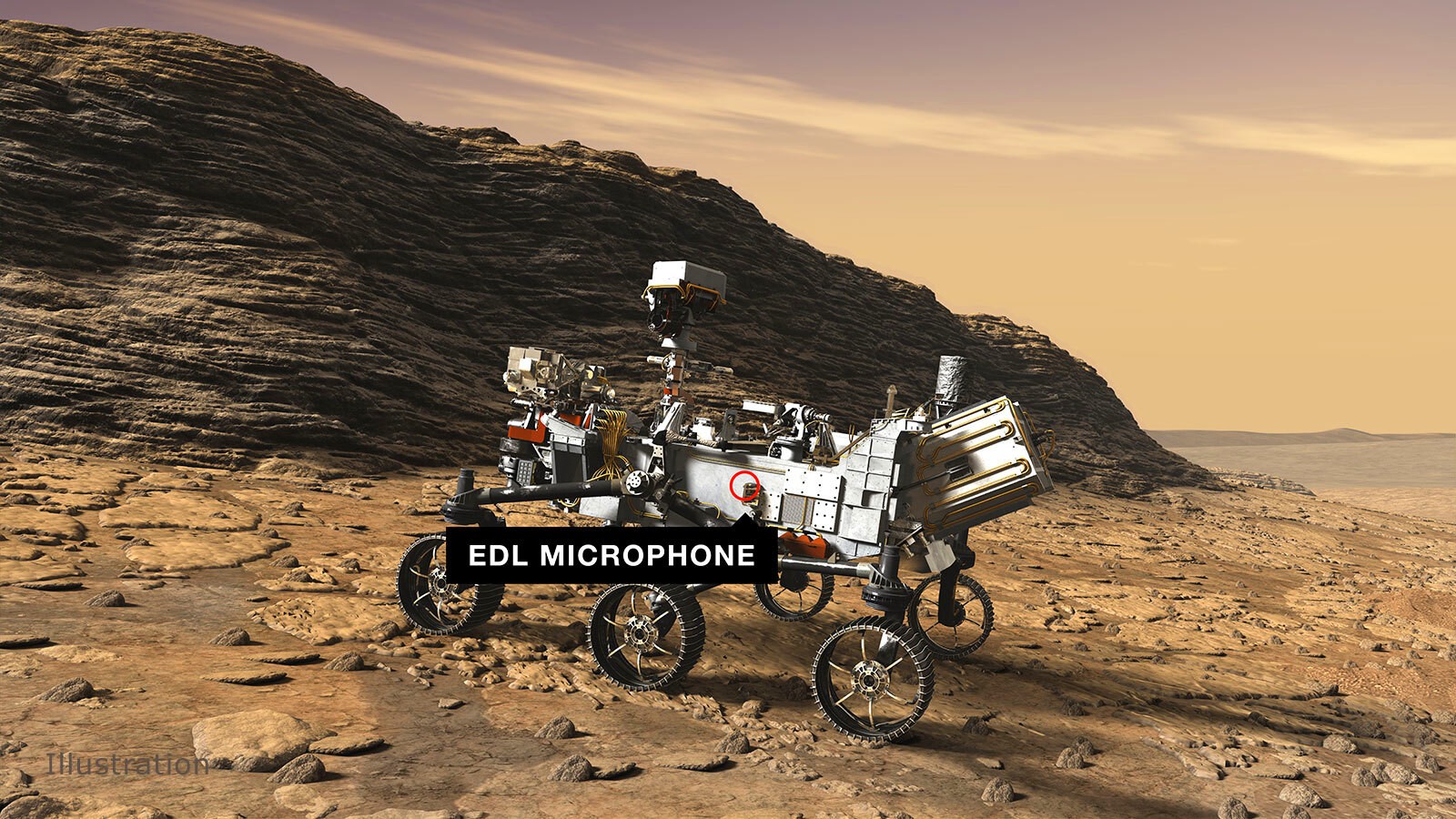Since its landing on Mars, NASA’s Perseverance Rover has shown utmost brilliance in studying and collecting researchable objects on the Red planet. These recordings have greatly helped scientists and researchers likewise in studying the Martian environment in a comprehensive manner.
Studies by NASA’S Perseverance Rover
Since landing on Mars more than a year ago, NASA’s Perseverance Rover has used its microphones to capture the sounds of the Red Planet, including its harsh winds and the hum of Ingenuity cutting through the atmosphere. And now those recordings have helped scientists discover that sound travels differently on Mars than it does on Earth.
In a study published on Friday in the journal Nature, researchers said they determined the Red Planet’s thin carbon dioxide atmosphere causes sound to travel slower on Mars, with a sound’s pitch further affecting its speed. On Earth, sound typically travels at 767 miles per hour. But on Mars, scientists determined that low-pitched travel at approximately 537 miles per hour, while high-pitched ones move at about 559 miles per hour.
Early Detection of High-Pitched sounds
Slower sounds on Mars
Were you to visit Mars, that means you would hear high-pitched sounds slightly earlier. “On Earth, the sounds from an orchestra reach you at the same speed, whether they are low or high. But imagine on Mars, if you are a little far from the stage, there will be a big delay,” Sylvestre Maurice, the study’s lead author, told France’s AFP news agency.
Sounds also carry a shorter distance due to the planet’s thin atmosphere. On Earth, they drop off at about 213 feet, whereas on Mars sounds start to falter after only 13 feet. That’s something that would make it difficult to have a conversation with someone only 16 feet away from you. If you want to hear how things like birds and ocean waves would sound on Mars, NASA has put together recordings that give a sense of just how much a Martian-like atmosphere would change our perception of the world.
Also Read: Elon Musk’s Starlink Technology Proven Effective for Ukrainians amidst War














